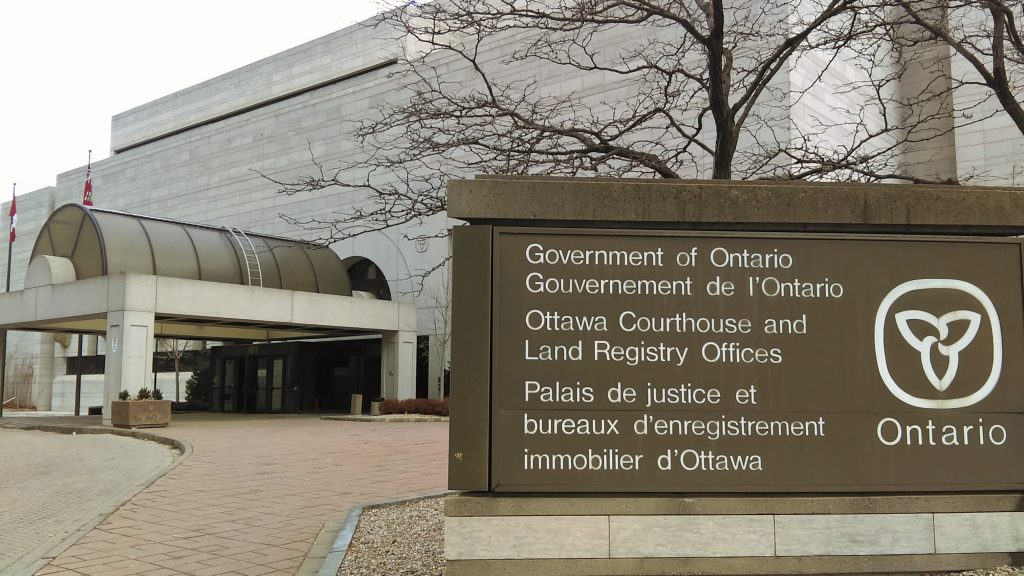Naqvi unveils courtroom upgrades
By David Sagolj
Ontario’s archaic court system could finally be moving into the 21st century after Ottawa Centre MPP Yasir Naqvi, the province’s Attorney General, announced plans to modernize the system.
“I’m of the belief that technology has a very important role to play,” Naqvi stated in a Nov. 30 announcement at Ryerson University’s Legal Innovation Zone. “It allows us to be more effective and more efficient in the way we provide legal services.”
The court system, which has been plagued by old-fashioned technology and practices, needs an update, said Naqvi.
“The last big innovation we have had so far in our justice system,” he said, “is that we moved from typewriters to desktops — paper filings to faxes. We just cannot stop there.”
The badly back-logged and slow-moving court system in Ontario has recently sparked claims of injustice and fuelled a sense of crisis among members of the legal community. Long delays in cases coming to trial are routinely decried by observers as unfair to victims and their families seeking timely closure on painful events, but also as unfair to alleged perpetrators of crime who sometimes wait years before getting a chance to challenge their accusers in court.
Calls to improve the system grew louder after several high-profile cases — including one involving a homicide — were tossed out by judges due to delays.
The modernization program, which Naqvi called “foundational,” began in November and is set to run until its completion in the fall of 2019.
The focus of the program is to improve the public’s interaction with the court system. The ministry plans to change the jury selection process, the filing of civil claims and joint divorce applications, the checking and disputing of traffic tickets, and the setting up and updating of child support, Naqvi stated.
He said the focus of the program is to improve people’s experience of the court system by taking the “practical, foundational steps necessary to make the system more user-friendly.”
Defence lawyer Dominic Lamb said the announced changes are long overdue. He said being forced to make in-person court appearances instead of working online is a huge drain of resources.
Lamb added that, “it doesn’t really serve any purpose” to do simple preliminary work in a courtroom when it can be done digitally instead.
Lamb said his work is extremely expensive for clients in the current, outdated system. “The problem with a system that demands in-person appearances for the simplest of tasks is cost. Lawyers are invariably expensive,” he said.
He noted that there have been times when he spent his whole morning waiting to complete a task, and that charging clients for that time is outrageous “when it can be done (online) in a manner that would cost a tiny fraction of that amount.”
Lamb chuckled as he mentioned the flaws in the jury-selection process. When people are called down during what he calls “jury season,” they come in as a group of about 150 and are whittled down to 12, he said.
“They’ll bring them all into a court room, and they’ll roll an old — it’s like a lottery drum made of wood — and they’ll pick names out of it,” he said.
Then most of the 150 people go home at the end of the day. Lamb said it would be better if the court brought “down 20 people, so (they would) save 130 people the time and the lost productivity.”
Lamb also said the Internet is a vital tool for lawyers in the courtroom today. “There’s nothing that blows my mind more than that we, as counsel, don’t have access to Wi-Fi,” he said.
In one case, Lamb said, having Wi-Fi gave him “some of the best evidence (he) could ever have.” While working on an impaired driving case, he was able to use Google Street View to virtually mark the witnesses’ locations and take the police officer down the street. Despite his positive views about the upcoming changes, Lamb expressed some reservations about potential restrictions placed on lawyers and the people they represent as changes are implemented.
“It always seems that everything that’s been done in terms of technology modernization excludes us — the people who are affected the most in the criminal justice system,” he said. “Justice isn’t done when you have an unequal access to tools.”

